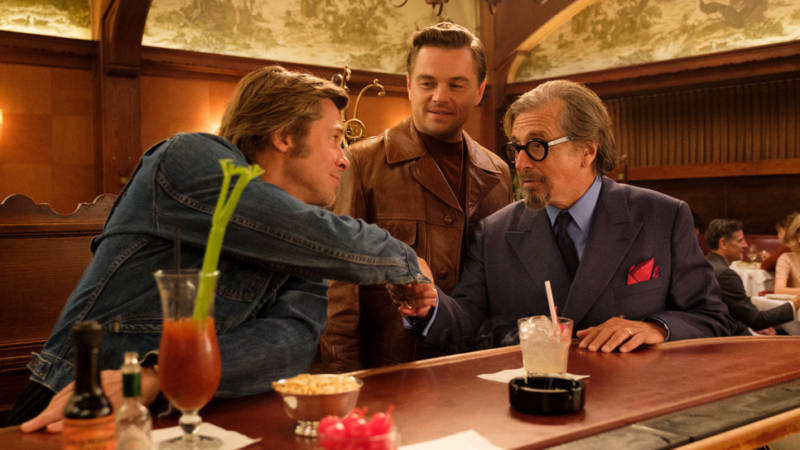Once Upon a Time in ... Hollywood, Quentin Tarantino's florid, sun-bleached, la-la land fantasia, would be a groovy trip of a movie in any era. But only now, with virtually the entire industry consumed by Disney's circle-of-life pop-cultural recycling algorithm—a vast, unsympathetic intelligence more larcenous and self-referential than 1,000 Tarantinos working in round-the-clock shifts—does it look like an essential one. Pulp Fiction, Tarantino's sophomore feature, hit with such seismic force 25 years ago that pleading its unimportance became a stubborn pre-Reddit subreddit of film criticism even as imitations proliferated. Now, QT is one of only a fistful of filmmakers who can still get studios to commit substantial resources ($90 million this time) to original screenplays. And lest his new film's conspicuous meditations on aging—and on the disappearing border between the big and small screens—elude you, he's just about done.
Tarantino's ninth and, he says, penultimate picture is a languid Rosencrantz and Guildenstern-ing of the 1969 murders of Sharon Tate, Jay Sebring and three others by members of the Manson cult, told mostly from the point of view of Tate's fictitious next-door neighbor. That would be fading TV star Rick Dalton (a career-best Leonardo DiCaprio), whose alcoholism contributed to the cancellation of his network western Bounty Law some years back. (Of course we get clips from the show; of course they're hilarious.) Since then, he's been reduced to sporadic villain-of-the-week gigs.
Cliff Booth (Brad Pitt, sharing a title card and a pay grade with Leo) was Rick's stunt double, but now he's just his driver, cheerleader, errand boy and professional best pal. While DiCaprio makes Rick a bundle of human-scale neuroses, unmanned by the realization of his obsolescence, Pitt paints Cliff as a more laconic figure—a bronzed, ageless, sentient pair of sunglasses who can stand up to Bruce Lee (Mike Moh) in a fight, declines sex with an underage hitchhiker (Margaret Qualley) on purely legal grounds, oh and also he just maybe murdered his wife.
That last bit is one of a few threads Tarantino leaves wantonly unsnipped. For yea, he shall fear no thinkpiece—not even the ones that have already appeared bemoaning the fact that Margot Robbie's Sharon Tate is present here more a set element than a character. Her most revealing act is to introduce herself to the staff of the Bruin Theater in Westwood when she decides to take in a matinee of the Dean Martin spy farce The Wrecking Crew, in which she has a supporting role. Robbie-as-Tate's face lights up every time the audience laughs at her pratfalls or applauds after her fight scene for which Lee trained her. Lee was indeed the credited "Karate Advisor" on The Wrecking Crew, but sorting out how much of the showbiz mise-en-scene here is fact and how much is, how you say, legend is a big part of what makes this one even more seductive to New Hollywood-era cinephiles than, well, every other Tarantino joint.

9(MDAxOTAwOTE4MDEyMTkxMDAzNjczZDljZA004))

